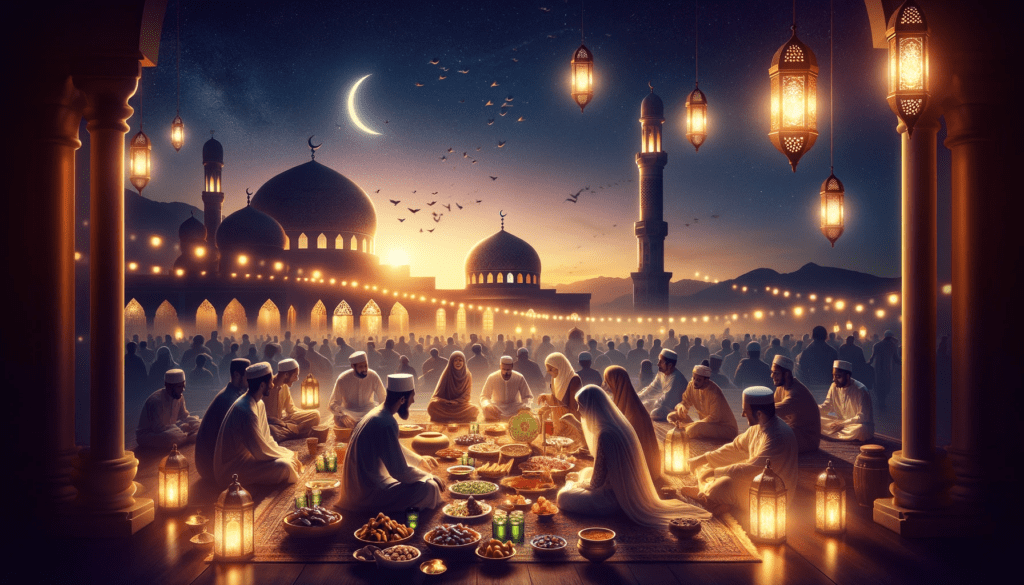Ramadan, the holiest month in Islam, is a time of profound significance for Muslims worldwide. As we anticipate the arrival of Ramadan 2024, scheduled to commence on Monday, March 11, and conclude on Wednesday, April 10, it is essential to understand the dynamic nature of this sacred period. While these dates provide a framework, it’s crucial to recognize that the exact start may vary slightly depending on the sighting of the crescent moon, a tradition deeply rooted in Islamic practice. This variability highlights the reliance of the Islamic calendar on the lunar cycle, resulting in Ramadan shifting approximately 11 days earlier each year. Such fluctuations evoke a sense of anticipation and spiritual preparedness among Muslims, underscoring the dynamic nature of their faith.
Understanding Ramadan
Ramadan holds immense significance in Islam as it commemorates the month in which the Quran, the holy book of Islam, was revealed to Prophet Muhammad (peace be upon him). It is a time of fasting, prayer, reflection, and community for Muslims worldwide. The month-long observance is marked by abstinence from food, drink, smoking, and marital relations from dawn until sunset. Beyond refraining from physical nourishment, Ramadan serves as a period for spiritual rejuvenation, self-discipline, and heightened devotion to Allah (God).
The Lunar Calendar and Ramadan
The Islamic calendar, known as the Hijri or lunar calendar, is based on the cycles of the moon. Unlike the Gregorian calendar, which follows the solar cycle, the Islamic calendar consists of 12 months of 29 or 30 days each, totaling either 354 or 355 days in a year. As a result, Ramadan shifts approximately 11 days earlier each year concerning the Gregorian calendar. This variation adds an element of unpredictability to the start date of Ramadan, contributing to the anticipation and excitement surrounding its arrival.
The Significance of Moon Sighting
The determination of the start of Ramadan hinges on the sighting of the crescent moon, known as the Hilal. This tradition is deeply rooted in Islamic teachings and serves as a means of establishing the beginning of the lunar month. According to Islamic jurisprudence, the new moon must be physically sighted by trustworthy witnesses for the commencement of Ramadan to be declared. This practice emphasizes the importance of observation and community involvement in determining religious events.
Regional Differences and Unity
Despite advancements in technology and astronomical calculations, the practice of moon sighting remains a significant aspect of Ramadan observance. However, this tradition can lead to regional variations in the start date of Ramadan. While some countries rely on local moon sightings, others follow the declarations of religious authorities or utilize scientific predictions. These differences reflect the diversity within the global Muslim community but also serve as a unifying factor, as Muslims come together to celebrate Ramadan despite geographical boundaries.
Spiritual Preparedness
The shifting start date of Ramadan underscores the need for spiritual preparedness among Muslims. As the month approaches, individuals engage in heightened acts of worship, seeking to maximize the spiritual benefits of this sacred period. This includes increased recitation of the Quran, additional prayers known as Taraweeh, and acts of charity and kindness. The anticipation of Ramadan serves as a reminder for believers to renew their commitment to their faith and strive for personal growth and purification.
Fasting as a Spiritual Practice
Central to Ramadan observance is the practice of fasting, known as Sawm. Fasting during Ramadan entails abstaining from food, drink, smoking, and other physical needs from dawn until sunset. Beyond the physical act of abstaining, fasting serves as a means of cultivating self-discipline, empathy, and gratitude. It fosters a sense of solidarity with the less fortunate and heightens one’s awareness of the blessings bestowed by Allah. Through fasting, Muslims strive to purify their souls, strengthen their connection with the divine, and attain spiritual enlightenment.
Community and Solidarity
Ramadan is not merely an individual endeavor but a communal experience. Muslims gather with family, friends, and fellow believers to break their fasts each evening during Iftar meals. These gatherings foster a sense of camaraderie, unity, and generosity within the community. Additionally, mosques host Taraweeh prayers, where congregants come together to recite the Quran and engage in collective worship. The sense of solidarity experienced during Ramadan transcends cultural, ethnic, and social barriers, embodying the universal values of compassion, empathy, and brotherhood.
Charity and Social Responsibility
The spirit of giving is deeply ingrained in Ramadan 2024 observance. Muslims are encouraged to engage in acts of charity and philanthropy throughout the month, known as Zakat and Sadaqah. Zakat, one of the Five Pillars of Islam, involves giving a portion of one’s wealth to those in need, while Sadaqah encompasses voluntary acts of generosity and kindness. These acts of charity serve to alleviate the suffering of the less fortunate, strengthen community bonds, and purify one’s wealth and soul. Ramadan serves as a reminder of the importance of social responsibility and compassion towards others, particularly the marginalized and vulnerable members of society.
Reflection and Self-Improvement
Ramadan 2024 provides an opportunity for introspection, self-reflection, and spiritual growth. Muslims are encouraged to engage in deep contemplation, repentance, and seeking forgiveness for past transgressions. It is a time to evaluate one’s actions, intentions, and relationships and strive for self-improvement. Through fasting, prayer, and acts of devotion, believers seek to strengthen their connection with Allah and cultivate virtues such as patience, humility, and gratitude. Ramadan serves as a catalyst for personal transformation and renewal, inspiring individuals to lead lives guided by faith, righteousness, and compassion.
Conclusion
As Ramadan 2024 approaches, Muslims around the world eagerly anticipate the arrival of this sacred month. While the exact start date may vary depending on the sighting of the crescent moon, the significance of Ramadan remains unwavering. It is a time of spiritual renewal, self-discipline, and devotion to Allah. The dynamic nature of Ramadan, marked by its shifting start date and regional variations, underscores the richness and diversity of Islamic tradition. As believers embark on this spiritual journey, may Ramadan serve as a source of blessings, guidance, and inspiration for all.







